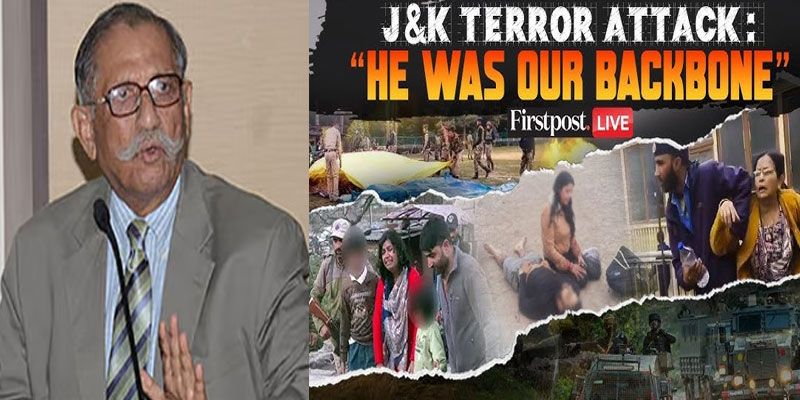Former Army Chief General Shankar Roychowdhury (Retd) has firmly attributed the horrific Pahalgam terror attack to a significant “intelligence failure” and demanded accountability at the highest levels. Speaking to PTI, Roychowdhury stressed the urgent need for answers, emphasizing that negligence had enabled the attack.
“I suspect intelligence failure. Somebody must answer for the lapses. There is definitely someone responsible for negligence and they must be held accountable for the consequences,” the former Army chief said. He further alleged the involvement of Pakistan’s intelligence agency, ISI, in orchestrating the assault that led to the tragic loss of 26 innocent lives.
Pahalgam Attack: A Shocking Day of Violence
The terror attack in Pahalgam on April 22 shook the nation. In a targeted shooting spree, terrorists opened fire on civilians — mostly tourists — in front of their families. The incident not only led to 26 fatalities but also sowed fear across the region, reigniting discussions about the security and intelligence apparatus in conflict-prone Jammu and Kashmir.
The Resistance Front (TRF), a proxy outfit of Lashkar-e-Taiba (LeT), later claimed responsibility for the carnage. The scale and suddenness of the attack raised serious concerns about how such a large infiltration could go unnoticed, especially in a region under tight military and intelligence surveillance.
Analyzing the Causes: Lapses, Complacency, and External Interference
General Roychowdhury did not mince words while analyzing the situation. He pointed out that complacency likely crept into the security establishment. “How did so many infiltrators manage to get through? This needs to be investigated thoroughly,” he stated.
He warned against underestimating the involvement of Pakistan’s ISI, which has historically orchestrated cross-border terror operations. While refraining from directly suggesting insider betrayal, he urged Indian agencies to stay alert to every possibility, noting, “We must keep our eyes and ears open.”
The broader context also cannot be ignored. Pakistan Army Chief General Asim Munir’s recent inflammatory remarks on Kashmir, calling it Pakistan’s “jugular vein,” may have emboldened terrorist groups, providing them ideological and tactical motivation to carry out attacks on civilians.
A Call for Tougher Measures Beyond Diplomacy
Responding to questions about India’s diplomatic efforts to isolate Pakistan, Roychowdhury expressed skepticism. “The diplomatic steps taken are not enough. Resistance measures will have to be taken. What shape they take depends on us. Conventional measures would not be enough,” he asserted.
He suggested that India must prepare to retaliate in a manner that maintains international legitimacy but firmly demonstrates that terror attacks will not go unanswered. “We must react in kind. Enough is enough,” the former chief declared, pointing toward a need for a recalibrated, assertive national security strategy.
Securing the Nation: Vigilance and Accountability Must Lead the Way
The Pahalgam tragedy is not just a stark reminder of the threats India continues to face, but also a wake-up call demanding introspection and immediate action. As General Roychowdhury rightly pointed out, intelligence failures cannot be brushed aside, and complacency cannot be tolerated when national security is at stake. True security lies not only in retaliation but in ensuring that such horrific breaches never happen again — through vigilance, accountability, and a relentless pursuit of truth over comfort.
(With inputs from agencies)





